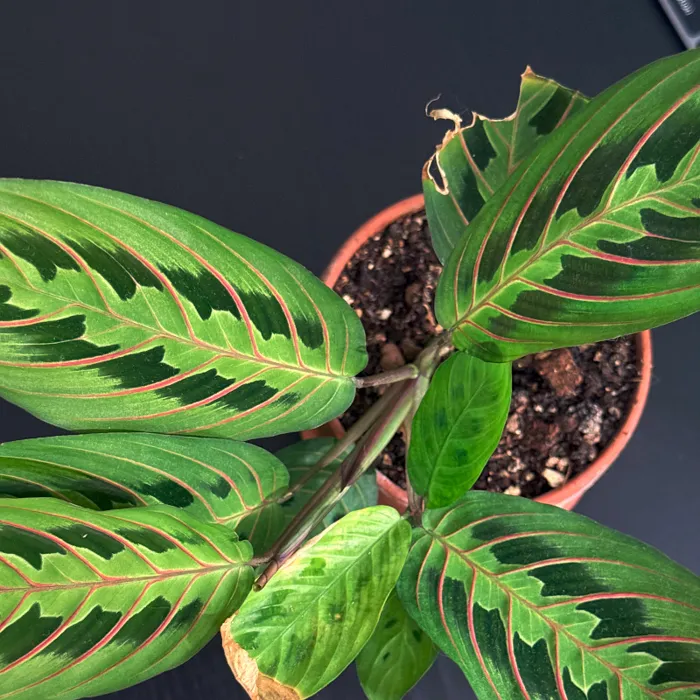Maranta
description
The maranta, commonly known as the "prayer plant," is native to the Brazilian rainforests and is renowned for its vibrant leaves and unique daily movements. Its green and red-patterned leaves fold up at night, resembling praying hands, and then unfold during the day. This low-maintenance plant thrives in indirect light and appreciates a bit of humidity, making it an excellent choice for homes. Additionally, it is safe for pets and known for its air-purifying qualities, combining beauty and practicality. Whether you are a beginner or an experienced plant enthusiast, the maranta's subtle charm is sure to win you over.
How to care Maranta
watering
Maranta plants (aka prayer plants) thrive when their watering routine matches their natural rhythms. Here’s how to adjust care through the year:
March – August
Growing season. During spring and summer, marantas are actively growing. Keep the soil lightly moist (but never soggy). Water when the top 1-2 inches of soil feel dry—usually every 5-7 days. They love warmth and humidity, so misting between waterings or using a pebble tray can boost moisture.
September – February
Dormant Season. In cooler months, growth slows. Let the soil dry out a bit more between waterings—wait until the top 2-3 inches are dry, reducing frequency to every 10-14 days. Avoid cold drafts and overwatering, which can lead to root rot.
humidity
While marantas adapt to average home humidity, they’ll thrive with a little extra tropical TLC. Keep the air moist, and your prayer plant will reward you with bold, dancing foliage.
March – August
During warmer months, marantas are in their growth phase. Aim for higher humidity (50-60% or more) to support vibrant leaves.
Mist leaves 2-3 times a week with room-temp water.
Run a humidifier nearby if your air is dry.
September — February
Growth slows in cooler months, but humidity remains important. Indoor heating can dry the air, so stay vigilant.
Reduce misting to once a week to avoid soggy leaves. Avoid placing plants near radiators, fireplaces, or cold drafts.

